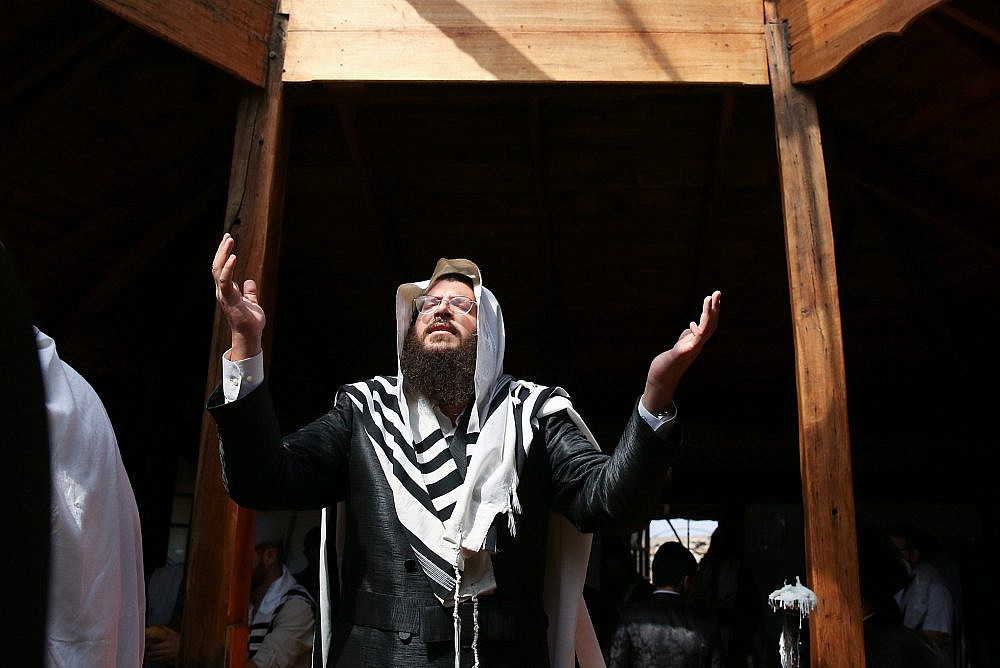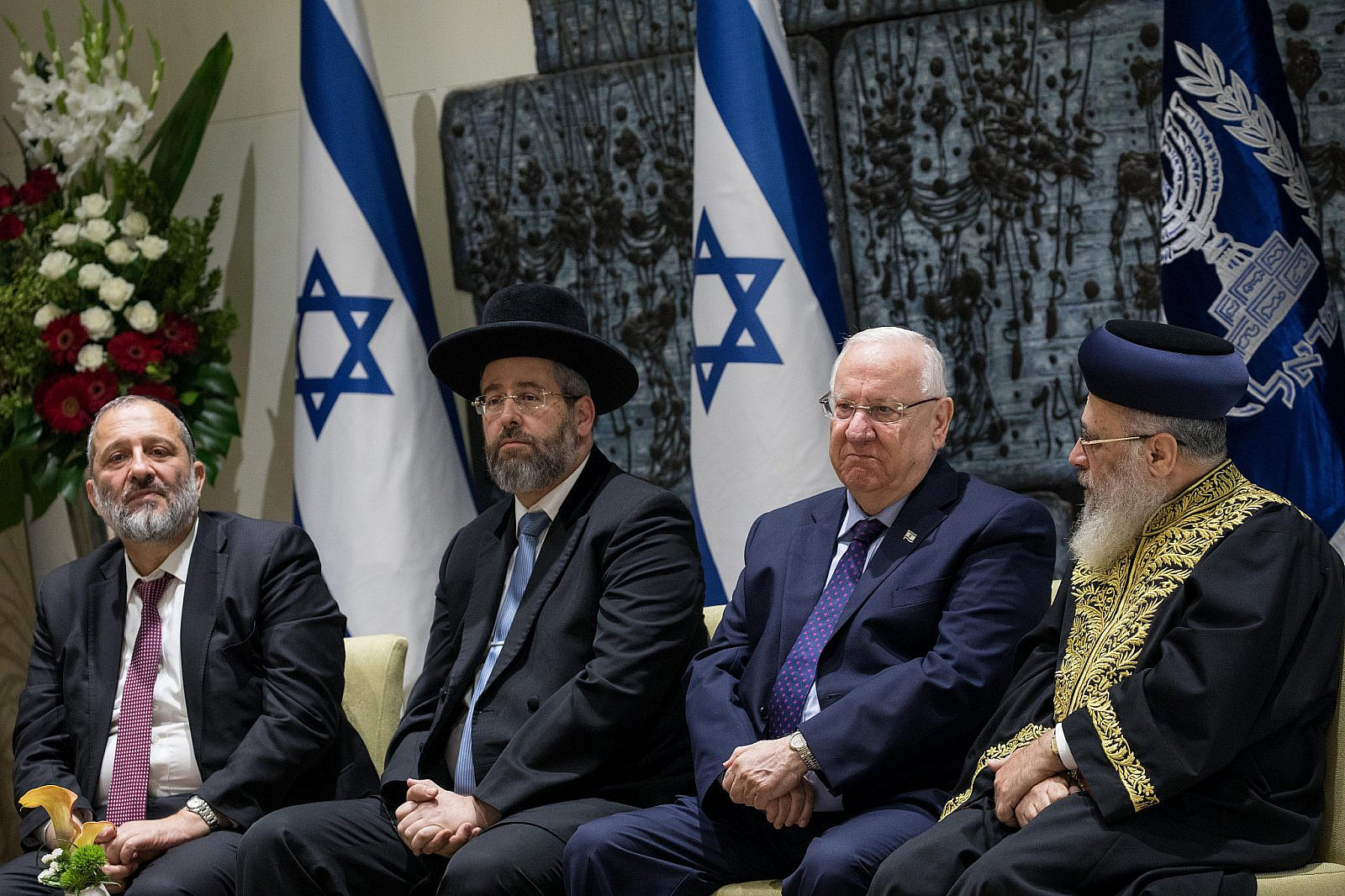With the Nation-State Law, Israel’s religious right is deciding who is a Jew
Israel's Nation-State Law does not see Judaism as a diverse religion, but as an identity that guarantees supremacy over other people — including other Jews.
 |
By Etan Nechin December 20, 2020
Israel’s Supreme Court is expected to hold its first hearing on 15 petitions against the Jewish Nation-State law this week. Passed in July 2018, the Basic Law, which officially defines Israel as the exclusive national homeland of the Jewish people, is increasingly being used to dispossess Palestinian citizens and exclude their language and culture from Israeli society.
As a self-described “Jewish state,” wide parts of Israeli law have been based on the exclusivity of a particular people since its very inception, including the Absentee Property Law (1950), the Law of Return (1950), and the Citizenship and Entry into Israeli Law (2003). In that sense, the law is not a perversion but a continuation of the state’s policy vis-à-vis Palestinians for the past 70-odd years.
Yet the law is an alarming turn nonetheless. While the wrongs of the 1948 war and the 1967 occupation were arguably born through complex historical circumstances, and other discriminatory laws were written in less explicit ways, the Nation-State Law is a legal document that signals Israel’s unequivocal desire to enshrine racial and religious supremacy.
The law does not only entrench systematic inequality, though; it also seeks to radically redefine what it means to be Jewish. It cements the racial hierarchy within Israel’s Jewish communities by erasing the cultural heritage of Jews from Middle Eastern countries, and by favoring the national definition of Judaism over its religious meaning. As such, the upcoming court hearing will not only be a battle for the soul of Israel as a nation, but for what Judaism and Jewishness mean.
Since Israel’s first prime minister David Ben Gurion sent his so-called “status quo” letter to Orthodox Jewish leaders in 1947, there has been a long-term pact between secular and religious groups in Israel to avoid altering communal definitions of Judaism.
According to this arrangement, secular society would operate with limitations in areas such as transportation on the Sabbath, laws around marriage and death, and others. In return, religious communities would turn a blind eye to certain deviations from the rabbinate, Israel’s highest Jewish religious authority, such as the immigration of hundreds of thousands of Jews from the former Soviet Union who have not been recognized as Jewish by the rabbinate.
 |
Legally defining who is a Jew through the Nation-State Law will end this status quo. Passed by the most right-wing, nationalist-religious government in the country’s history, the law exposes the hypocrisy of the religious right in Israel: the only definition it can propose of being Jewish is “not an Arab.” Judaism is not defined as a vibrant religion with manifestations all around the world, but a state identity that guarantees superiority over people of different faiths under its rule, as well as over Jews living outside Israel. In other words, in Israel, Judaism is a synonym for power.
Narrow definition of Judaism
If the Supreme Court upholds the Basic Law, Israel will be at a point of no return. Not only will it constitutionally enshrine racial and religious supremacy, but the law could sever Israel’s ties with Jewish communities around the world, whom the state has relied on for decades to sway international public opinion in its favor.
For Israeli society, the “diaspora” is a dead place. It is telling that the only state-sanctioned foreign trip for Jewish students in Israel is not to meet fellow Jews in New York or Paris, but to Auschwitz. Israel sees itself as the only viable place for Judaism to exist, and its narrow definition of Judaism as the only one worthy of legitimacy.
Similarly, the Israeli rabbinate has always excluded most Jewish communities in the United States and does not acknowledge Reform or Conservative Judaism. As if by divine coincidence, on the same day the Nation-State Law was passed, Israeli police arrested a Conservative rabbi for performing a wedding that was not sanctioned by the rabbinate.
The disdain is echoed by top Israeli officials. Referring to Reformed and Conservative Jews, ultra-Orthodox Interior Minister Aryeh Deri said that “if this is Judaism, I don’t want any part of it,” adding that non-conservative Jews are leading to the demise of Judaism. Far-right politician Naftali Bennett claimed that the real threat facing diaspora Jews is not homegrown terrorism or Iran, but assimilation. Even in the wake of the Tree of Life massacre in 2018, many officials, although offering their condolences, stopped short of calling the Tree of Life a synagogue.
Israeli politicians rail against Iran for its theocratic rule, but Israel itself is one of the top 22 most religiously restrictive countries in the world. When religion is used as a political hammer, it necessarily comes down to those who do not share the faith; when it becomes a state ideology, it excludes people who might not adhere to all its tenets.
Therefore, even though Jewish and Palestinian citizens of Israel are en face free to pursue their own religious and civic fate, in reality, any diversion from state ideology means running the risk of having one’s rights stripped.
In Israel and abroad, it is incumbent upon all Jews to oppose this law and its measures to keep Judaism a thriving, diverse religion. If the term “Jewish and democratic” has always existed on a knife’s edge, then this decision could put the weight that will split it forever.


No comments:
Post a Comment
Note: only a member of this blog may post a comment.